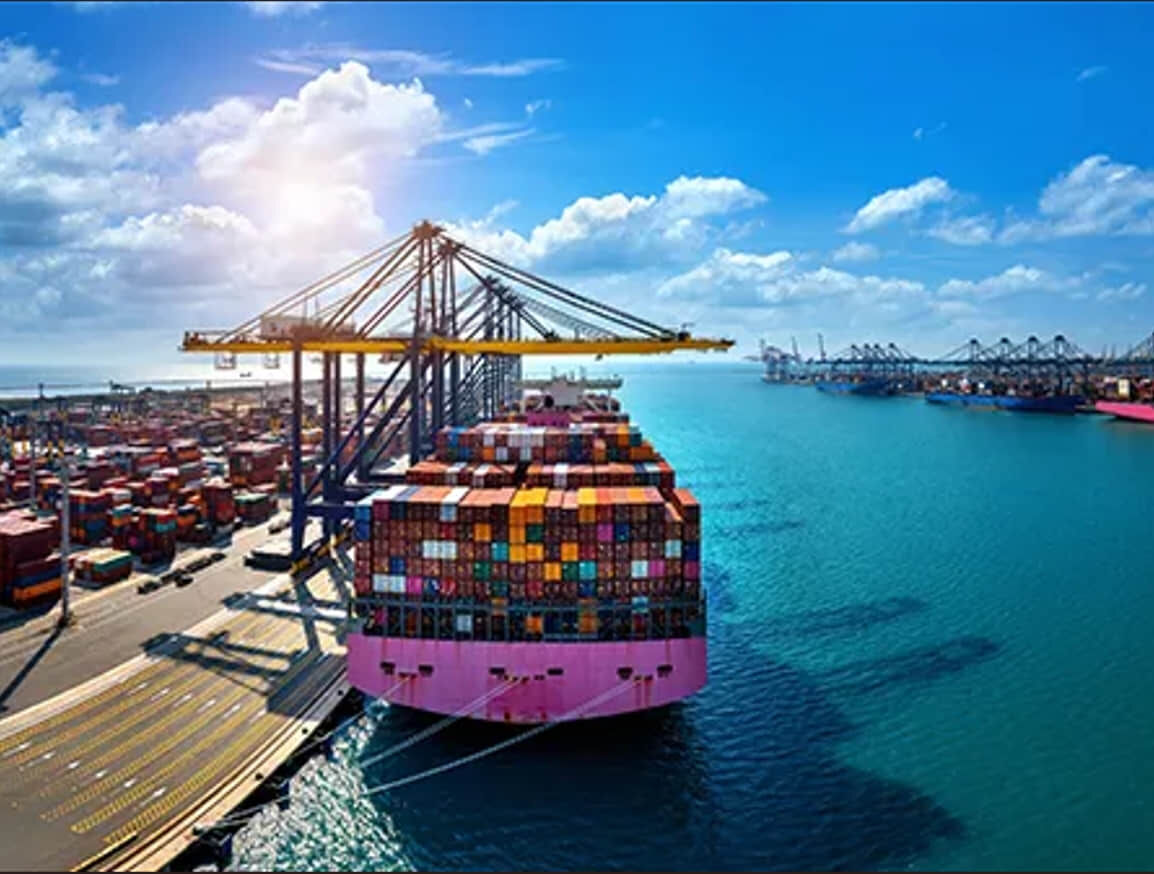Delivery Speed and Transit Time Efficiency
Impact of Delivery Speed on Customer Satisfaction
Fast delivery is crucial to customer satisfaction, particularly in ecommerce and logistics. There is a wealth of research that reveals that 79% of consumers want to have fast delivery in purchase decisions. Conveniences like this can outweigh a higher price, inspiring a sense of customer loyalty and encouraging repeat business. For example, expedited delivery services can be used to prevent bad experiences, like missed deliveries that result in poor feedback and sales loss. This relationship underscores the significance to companies of considering delivery speed as a part of their customer loyalty plans.
Balancing Speed with Budget Constraints
Although prompt delivery is paramount, organizations often struggle to balance speed of delivery with budget constraints. The stats are that 60% of businesses find it hard to justify the cost of express freight. This requires astute planning to ensure you meet customer expectations while protecting your budget. Businesses can experiment with providing several shipping options to cover different customer requirements without adding to the costs. This enables companies to increase customer satisfaction by giving the customers the ability to select different price-points for different levels of delivery speed, balancing company operational budgets with the demands for various delivery times from customers.
Service Tiers (Express vs. Economy Options)
And that is where the difference between service tiers (express and economy service) becomes critical for logistical plans. Express solutions can cut delivery times significantly, however, they are more expensive and bound to affect a company’s pricing policy and the extent to which it can cover customers. Provide a variety of service options For some businesses, having a mix of service options may draw a larger variety of customers - those who are price sensitive and those who are time sensitive. This covers the market and ensures sales flexibility with options that are appropriate for consumers’ different expectations and at the same time optimizes logistics and cost efficiency.
Navigating Customs Regulations and Documentation
Understanding International Trade Compliance
It is vital to have effective international trade compliance or you could wind up with expensive fines and penalties. It is also essential to follow specific customs regulations as defined by the U.S. Customs and Border Protection (CBP), from which the requirements differ from product to product and country to country. Preserving knowledge of the trade compliance of countries engaged in the import and export process is likely to facilitate operations. For companies, this translates to a much less bumpy and lower liability path when shipping products internationally. With compliance measures built into their logistic plans, companies can achieve better control over their international shipments which reduces the likelihood they will violate trade laws inadvertently.
Essential Documentation for Smooth Clearance
The Bill of Lading, Commercial Invoice, and Customs Declaration are key documents that a customs clearance depends on. Lacking proper paperwork can result in delays, costs, and fines and can cause supply chains to be upended. A trustworthy logistics company can be an indispensable source in preparing and processing these, allowing you to avoid expensive errors and misunderstandings. These partners are often well versed in successful documentation handling and have a good system in place to make sure that all required documentation is legible and submitted in a timely manner, mitigating the chance of a shipment delay and improving the overall effectiveness of an international shipping chain.
Avoiding Penalties and Delays
Knowing some of the pitfalls that could cause a delay in a shipment can help businesses think ahead and mitigate issues. Case studies have demonstrated that organizations focusing on comprehensive compliance systems realized a 30 percent reduction on clearance time. The use of compliance automation software that can prevent employees from making errors manually will go a long way to reduce errors and improve operations in general. With technology solutions plugged into their supply chain, businesses can take the pain away from shipping, bypass potential delays or penalties and keep a reputation of reliability through the entire international business process.
Evaluating Global Network Coverage and Reliability
Importance of Regional Service Availability
The local availability of a logistics provider is of utmost importance for reliable and timely deliveries. An extensive local reach enables a firm to handle everything about deliveries promptly and without a hitch, thereby satisfying their clients. Studies have shown that good control is able to reduce journey times by up to 15% if the network coverage is adequate to support route choice. The result is faster, more reliable delivery. Knowledge about the varying requirements of a specific region also facilitates custom logistics solutions, thereby improving customer satisfaction and developing customer loyalty as companies reach out globally.
Partnering with Established Logistics Providers
Collaborating with big delivery companies such as DHL and FedEx also can greatly improve the quality of service integration and reliability. They can also boast useful relationships with customs, as well as with local governments, which can speed up the process of getting those services off the ground. This influence can be verified via user reviews and industry reports, which show how often a provider has been reliable in the past. Furthermore, by collaborating with these carriers, you can have the tools and tracking systems used by them so that you can deliver in a timely and traceable manner.
Contingency Planning for Unforeseen Disruptions
Strong contingency planning is involved in mitigating unexpected disturbances such as disasters and social problems. Companies that plan for different eventualities can restore operations 25% sooner than those that don’t, statistical models show. By building extensive plans that can be constantly refined and revised, companies can be ready for almost anything, maintaining the flow of products through the ports. By being proactive, you can not only prevent future problems but also establish trust and reliability to clients – and if that doesn’t ensure longevity in business, we don’t know what does.
Cost Analysis and Shipping Budget Optimization
Comparing Pricing Models and Hidden Fees
When it comes to international express services, a comparison of pricing models is required to uncover any additional fees, for example, handling and fuel surcharges. Such add-on charges can greatly increase the overall shipping cost, and are frequently overlooked until contracts are carefully evaluated. Through careful examination of contracts, firms can realize 20% savings by uncovering and challenging these additional costs. When you know the different kinds of pricing strategies used to sell logistics, you can make a decision that works out for your budget without sacrificing what you need.
Volume Discounts and Contract Negotiations
Volume discounts are a key part of reducing shipping rates for businesses shipping higher volumes. Contractual negotiations on bigger shipping commitments have the potential for substantial savings and lower rates. Data indicates that companies can receive a 30% discount when they sign long-term deals. Regular renegotiation and renegotiation is the key to staying competitive with shipping rates and keeping the costs in line with the market.
Insurance Considerations for High-Value Shipments
If you are sending valuable products, having full insurance coverage is mandatory to protect against lost or damaged goods in transit. Research shows that underinsured companies suffer loss ratios that can seriously impair the bottom line. The risks can fortunately be reduced by considering the different shipping insurance options to adequately insure precious cargo. In this way, businesses can protect their assets and avoid financial struggle as a result of unforeseen events.
Technology Integration and Customer Support
Real-Time Tracking Systems and Transparency
It is here were real-time tracking systems are critical to freight transparency – so customers can see where their package is, at every stage of the delivery process. According to their research, businesses that provide these capabilities could reduce customer requests by 25% and clients can monitor their deliveries themselves without the need for constant updates. By unifying these systems, not only do you streamline operations, but you also greatly elevate the customer experience, building trust and customer satisfaction.
Multilingual Support for Global Operations
Adoption of multilingual capabilities for global businesses is a must-have. It allows the owners to serve clients from all over the world without facing any language barriers. It’s been demonstrated that companies with multilingual customer support boast a greater engagement and loyalty, as customers feel understood and appreciated. Companies can reach far and wide and deliver great customer service experience by training staff in all languages.
Proactive Issue Resolution Strategies
Proactive resolution actions are critical to preserve high levels of customer satisfaction and loyalty. Anticipation of problems as well as timely customer communication can help prevent complaints and foster customer trust. Analysis shows that giving customer service teams autonomy to resolve issues quickly, not only boosts team proficiency, it aligns customer trust in the brand with a brand that can always be counted on. By adopting such measures, customers are not left in the dark and this results in a better and more reliable service structure.
FAQ
What are the main factors affecting delivery speed?
Delivery speed is primarily influenced by logistical strategies, international trade compliance, and regional network coverage.
How can businesses balance delivery speed with budget constraints?
Businesses can offer multiple shipping options to cater to customer needs, allowing them to balance speed with budget constraints.
Why is understanding customs regulations important?
Understanding customs regulations is crucial for avoiding costly fines and ensuring smooth international shipping operations.
How do partnerships with logistics providers benefit businesses?
Partnerships with established logistics providers can enhance reliability, integrate advanced tracking technology, and smooth service initiations.
What role does technology integration play in logistics?
Technology integration, such as real-time tracking systems, improves efficiency, transparency, and customer satisfaction in logistics operations.


